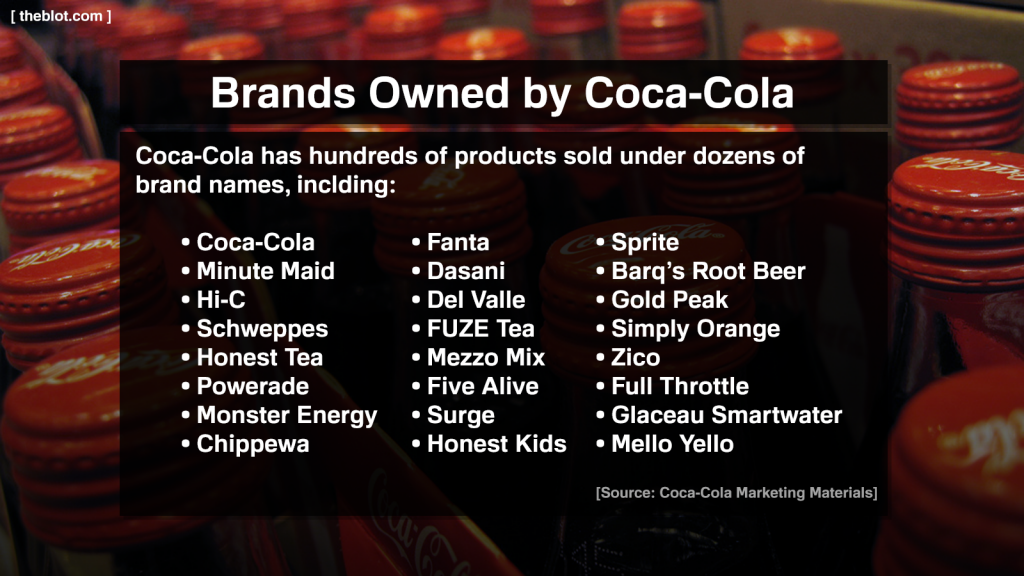What is one of the largest contributing factors of obesity in America?
Not sugary soft drinks like Coca-Cola, Sprite or Fanta — at least not according to scientists working under a non-profit health organization bankrolled in part by the beverage giant.
On Sunday, Aug. 9, The New York Times reported on the close ties between scientists working for the so-called “Global Energy Balance Network” and the Coca-Cola Company. Those scientists — nearly a dozen spread across every populated continent on the planet — have attended lectures and written think pieces for medical journals shifting blame away from sugary drinks like Coke products as the chief cause of obesity, instead using pseudoscience to claim that a lack of exercise is in large part to blame for the worldwide health epidemic.
“Most of the focus in the popular media and in the scientific press is, oh they’re eating too much … blaming fast food, blaming sugary drinks and so on,” Steven Blair, an exercise scientist and one of the group’s executives, said in a video quoted by the Times. “There’s virtually no compelling evidence that that, in fact, is the cause.”
There’s actually substantial evidence pointing to sugary beverages — like the more than 500 drinks offered by Coke under its own and other brand names — is a contributing factor to the obesity epidemic. There is also substantial evidence pointing toward calorie consumption as a leading cause of weight gain, and that those who seek to lose weight should limit their intake of so-called “high glycemic foods” including sugary beverages.
Read more: Coke Looks to Smaller Sizes As Sales Fall Flat
But Coca-Cola would rather you forget about all that science. Instead, it is steering consumers toward a dangerous belief that its high-sugar, high-calorie drinks are a tool for hydration on par with water, according to numerous fact sheets, internal documents and marketing materials reviewed by TheBlot Magazine.
For years, Coca-Cola has made it a point not only to encourage people to exercise more, but to target those who do exercise regularly in its marketing campaigns. Three years ago, Coca-Cola began distributing an eight-page brochure encouraging athletes to include its products as part of their daily workout regimens.
“Choose a flavored drink you like,” the brochure reads. “Hydration goes down when it tastes great.”
Several pages later, Coca-Cola offers nine hydration suggestions from its portfolio of products, including Dasani water, Classic Coca-Cola and the sugar-loaded Vault (the latter drink was replaced by Mello Yello shortly after the document was published).
Another tip suggests that athletes take fluid with them, or have the money to buy Coke products when they are on the go.
“Sweet tasting fluid-replacement drinks taste good, so you’re apt to drink more and get the carbs you need,” reads a line attributed to Dr. Mindy Millard-Stafford, then an advisor to Coca-Cola’s Beverage Institute for Health and Wellness.
DOCUMENT: View the source material for this article (downloadable mirror)
The document was distributed in 2012 as part of Coca-Cola’s overall efforts to re-shape its products as tools for hydration. The document is no longer available from Coca-Cola’s website, and a webpage sourced in the document as a portal for hydration tips now re-directs to a consumer contact page for the company’s marketing initiatives.
Spinning the company’s beverage products in the public sphere as a wellness tool was just one part of Coca-Cola’s overall plan to combat declining sales over recent years as consumers grew more health-conscious. And there is ample evidence to suggest that Coca-Cola is more than aware of the health implications of its own products.
In a 2009 sustainability report reviewed by TheBlot, the company said it would “invest more than $50 million in research” by this year and would “innovate with natural sweeteners, which have the potential to lower calories per serving.”
The company also said it was committed to “strive to have low- and no-calorie options and/or smaller portion sizes available in communities where obesity was a problem” as part of the company’s “Live Positively” campaign.
“Consumers are increasingly making purchase decisions based on their concerns for the health and well-being of their families,” the report said. Out of 600 new products launched globally in 200, “more than 180” were low- or no-calorie beverages, Coca-Cola said (the company defines “low calorie” as a beverage that contains zero to 25 calories per eight-ounce serving).
Those low- and no-calorie options drove nearly one-third of sales in North America in 2011, according to figures cited by the company in a mid-2012 “Statement on Obesity.” More than 40 percent of Coke-branded products sold that year were low-calorie options, including Coke Zero and Diet Coke, the company said.
In the same document, the company said it used its marketing prowess as a way to educate consumers “on the role our variety of beverages can play in sensible, balanced diets and active, healthy lifestyles.”
“We are committed to using evidence-based science to guide the choices we offer and the way we educate (others) about those choices,” Coca-Cola said.
But as the Times noted in its story last week, the company appears to be relying solely on the scientific conclusions with which it agrees. In some cases, the company helps manufacture the research on which it relies; a document reviewed by TheBlot said Coca-Cola had earmarked more than $5 million for research that would help guide the company in marketing and making new products.
Earlier this month, the Pennington Biomedical Research Center announced a study of more than 6,000 children ages 9 to 11 from every habitable continent in the world found that lack of exercise was the main cause of childhood obesity across a variety of cultures. Other factors cited included lack of sleep and watching too much television.
“We know that diet and exercise play significant roles in overall health and weight management,” said Dr. Peter Katzmarzyk in an Aug. 3 press release. “But I was surprised to see that physical activity makes an even bigger impact on children’s weight than we previously thought.”
Dr. Katzmarzyk’s quote was the only time the word “diet” appeared in the press release. A line at the very bottom of the release noted that the study was funded by the Coca-Cola Company.
Matthew Keys is a contributing journalist for TheBlot Magazine.







